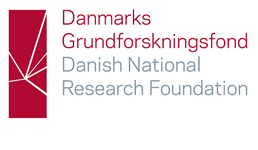
Excitons – bound pairs of electrons and holes in a semiconducting material – can be generated by
means of laser excitation not only in their ground but also excited internal states. More than 60
years after their discovery, the investigation of such Rydberg excitons is currently attracting
increased interest due to their vastly exaggerated properties, ranging from long lifetimes and
strong mutual interactions to enhanced response to external fields.
The workshop will explore the physics and applications of excitons in cuprous oxide
semiconductors, atomically thin semiconductors and other materials, and cover areas ranging from
quantum optics, non-linear optics with Rydberg exciton polaritons, many-body physics of dipolar
excitons and their interactions with charge carriers to quantum sensing applications. It will provide
a venue for sharing latest results and discussing current challenges and new perspectives in this
growing and vibrant field of research.
Topics
- Spectral properties Rydberg excitons
- Rydberg interactions in Cu2O
- Excitons and dipole interactions in two-dimensional materials
- Exciton polaritons and nonlinear optics
Hadiseh Alaeian, Purdue University, US
Marc Assmann, University of Dortmund, DE
Thomas Boulier, Laboratoire de Physique de l’Ecole Normale Supérieure (LPENS), Paris, FR
Georg Bruun. Aarhus University, DK
Liam Gallagher, University of Durham, UK
Armando Genco, The Polytechnic University of Milan, IT
Arturo Camacho Guardian, National Autonomous University of Mexico, MX
Chun Hung Lui, University of California, Riverside, US
Na Young Kim, University of Waterloo, CA
Stephen Lynch, Cardiff University, UK
Jörg Main, University of Stuttgart, DE
Hamid Ohadi, University of St. Andrews, UK
Sylwia Zielińska-Raczyńska, Bydgoszcz University of Science and Technology, PO
Dirk Semkat, University of Greifswald, DE
Tomasz Smoleński, ETH, Zûrich, CH
Ajit Srivastava, Emory University, Atlanta, US
Stephan Steinhauer, KTH Royal Insitute of Technology, Stockholm, SE
Valentin Walther, Harvard, US
The workshop is open to all, and free of charge. To attend the workshop, prior registration is necessary.
Online participation: connect via zoom: https://aarhusuniversity.zoom.us/j/63312496633
See the program here
Aarhus Institute of Advanced Studies (AIAS), Aarhus University, Buildings 1630-1632, Høegh-Guldbergs Gade 6B, 8000 Aarhus C, Denmark. See location on a map.
